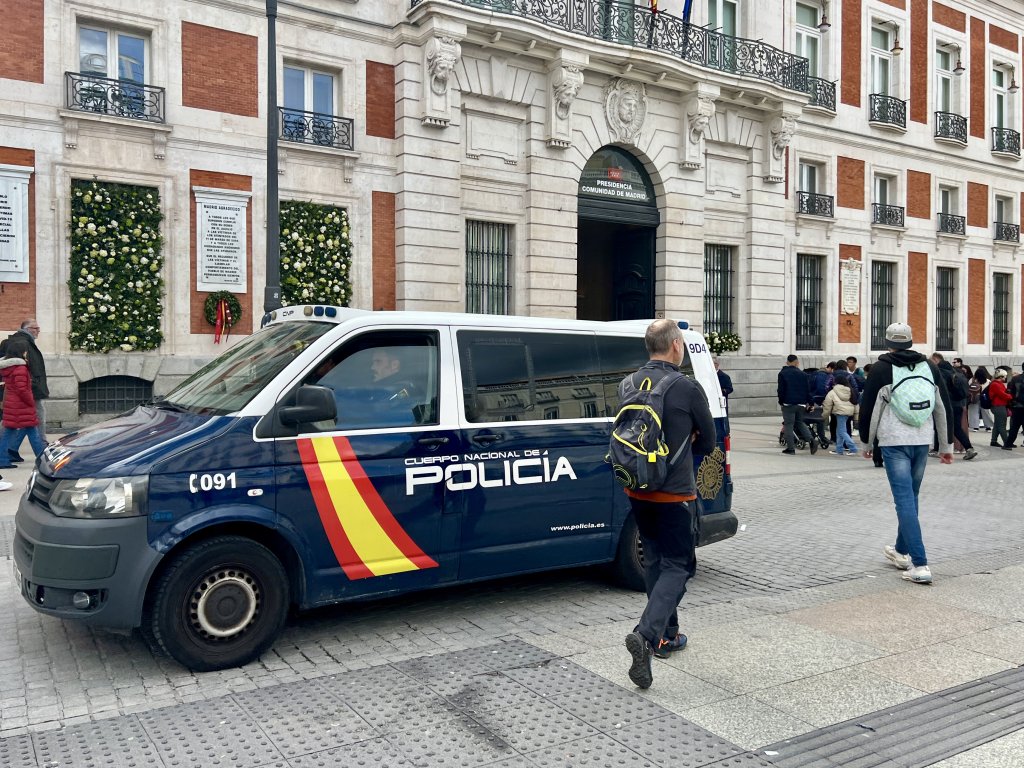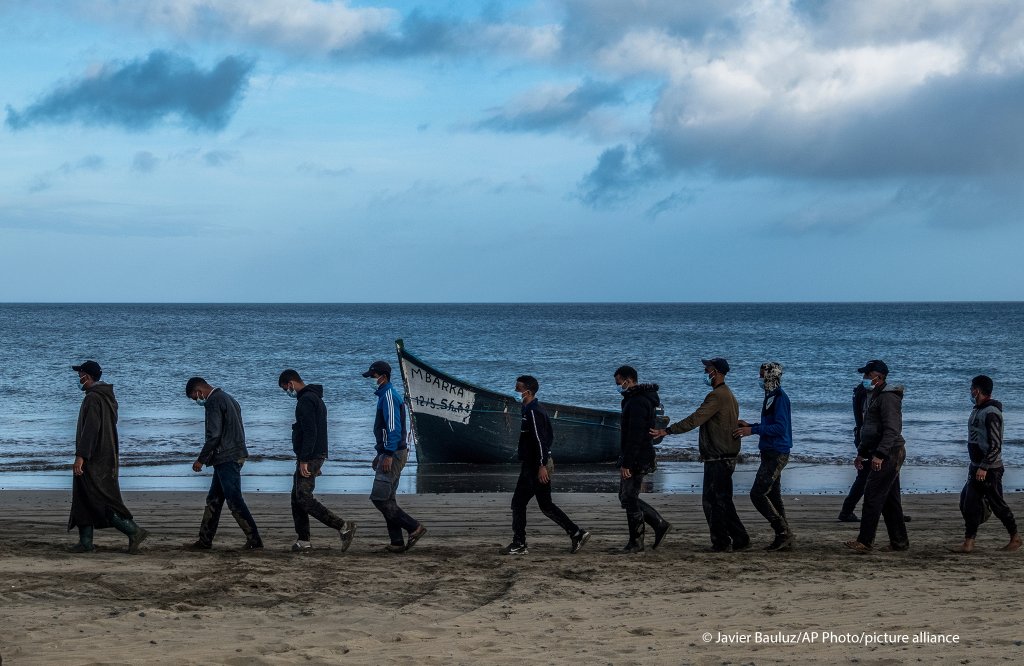In Madrid, concerns have risen following the rape of a 14-year-old Spanish girl. Locals have attacked young migrants at a first reception center after the news of the assault. The incident has drawn attention from parties across the political spectrum.
According to media reports from Spain, two hooded individuals arrived at the first reception center in the neighborhood of Hortaleza in Madrid on the evening of August 31, where they attacked two minors and an adult.
During the melee, one child was reportedly injured and required treatment in hospital but has since been discharged.
Security at the center was significantly increased the following morning, with several police officers monitoring the premises and manning the entrance in and attempt to avoid further clashes.
The assaults at the center come after a young Moroccan migrant was taken into detention at a closed juvenile prison last week on suspicion of raping a 14-year-old girl in a nearby park, according to legal sources speaking to the EFE news agency; he is believed to have been staying at the center in Hortaleza.

Francisco Martin, the parliamentary representative of Madrid, meanwhile condemned the assault on the residents of the center, pledging to apply the "full force" of the law against the perpetrators of the attacks against the asylum seekers.
"Hate speech ends up expressing itself in hate crimes, which is what we have unfortunately seen," the politician from the left-wing Popular Party added.
A highly politicized issue
However, the politics behind the case is somewhat more complicated: While Martin represents Madrid at the national parliament, the regional government of Madrid itself is run by the right-wing People's Party.
Its regional government leader, Isabel Diaz Ayuso, said that she had asked for the name of the Moroccan minor accused of the sexual assault to be added to a list of "maladapted" underage individuals, who were currently under consideration for repatriation to their home countries.
She added that the issue was not only about criminal justice but chiefly a matter of public safety and migration control, elaborating on X that in her esteem, "(e)very day, minors are becoming more aggressive and arriving in worse conditions."
The central government in Madrid reacted to this by scolding Ayuso for using the ongoing inquiry into the events to double down on her Popular Party's increasingly hardline position against migration.
Martin meanwhile also responded by highlighting that Madrid had "recorded 256 rapes this year, yet only this case elicits such political zeal … It is unacceptable to criminalize vulnerable populations."
Far-right calling for protests
In the meantime, other political parties in Spain have gone even further, with the hard-right populist Vox party calling for a public demonstration outside the center.
"The sexual assault against a 14‑year‑old in Hortaleza is a consequence of the 'progressive consensus' embodied by both the socialist party and the Popular Party," said Javier Ortega Smith, Vox party spokesperson in Madrid.
"This disastrous policy of open borders … allows violence to become widespread in neighbourhoods hosting these reception centers," he further elaborated.
Santiago Abascal, the national leader of Vox, meanwhile described these recent events as "the consequence of the invasion," referring to the influx of migrants to Spain "for decades."
Far-right groups, often backed by Vox, have already mounted repeated protests outside the Hortaleza First Reception Center in Madrid in the past, most recently last month -- well before the current escalation.
Read AlsoUK: Is there an increasing number of sexual assaults committed by male migrants?
A recent string of anti-migrant rallies
The incident comes just weeks after violent unrest in Torre Pacheco in Murcia, where a 68-year-old man was reportedly assaulted by three North African youths.
This attack triggered days of attacks on migrants as part of a growing nationwide pattern of rising anti-migrant sentiment, spilling over into the nearby San Antonio neighbourhood, where many migrant agricultural workers stay during the harvest season.
Social media videos with false narratives further incited this hatred against immigrants in Spain, resulting in clashes between locals and migrants.
Police took several suspects into custody during these violent confrontations; with far-right groups stoking much of the anti-immigrant sentiment, prosecutors have opened several investigations into hate speech and incitement to violence.
Read AlsoSpain: 5 hurt in anti-migrant violence blamed on far right
Unaccompanied minors at the heart of Spain's migration debate
The issue of the accommodation of underage migrants, in particular unaccompanied children, has long been highly contentious in Spain.
Many of the country's regional governments refuse to host youngsters arriving in Spain by sea, particularly the Spanish archipelago of the Canary Islands.

The regional government of the Canaries is overwhelmed with about 6,000 unaccompanied minors with nowhere to host them. The Canary Islands have repeatedly raised concerns not only about overcrowding at the existing facilities but also about the strain on local services.
Madrid itself has filed three legal appeals against different aspects in ongoing attempts to distribute about 600 underage migrants to the capital city region from the Canaries, saying it only had capacities for 50.
Furthermore, the idea of erecting longterm reception centers for young people is also considered to be a potential legal problem, as children are meant to be with families and not in faceless facilities.
Read AlsoCanary Islands President: 'No one in Spain seems to want little Black children'
Can children be sent back to countries of origin?
In the past, Spain has approved the repatriation of a total of 23 migrant children to their countries of origin since 2019, according to information obtained by the daily El Pais newspaper under Spain's freedom of information laws.
However, the majority of those cases involved toddlers and other children under the age of 12, where a relative in their home country agreed to take over custodianship upon their return.
Furthermore, the director general of the police, Francisco Pardo, told El Pais that migrant minors cannot be expelled from Spain without bilateral agreements on their return in each case and instance.
"The only option is repatriation in relation to the reunification of foreign minors with their families or by placing them in the care of child protection services in their country of origin," he stressed.
Lourdes Reyzabal, the leader of the Raices Foundation, which supports children and youths in Spain, said that such deportations of juveniles should never be "used as a political weapon, or for our protection system to shirk its responsibility."
"Under no circumstances can the motivation be retribution," she further highlighted, stressing that in her view, no one must suffer collective punishment for recent events and developments in Spain.
The regional Madrid government said it would refer this case to the government.
"We will take whatever action is necessary to ensure that the government complies with its legal obligations," said Ana Davila, the regional minister for social policy.
Read AlsoSpain: Government registers drop in Canary Island arrivals
with EFE
